
How to Choose an Eco-Friendly Search Engine for Free
Discover five search engines that support environmental protection. Learn how they work, their usability, and what sets them apart from popular options like Google, Bing, and Yahoo.
2024-10-070 minute readTips
Share
The Impact of Search Engines on Our Lives and the Environment
In today's digital society, search engines have become an essential tool in our daily lives. We use search engines like Google, Bing, and Yahoo to gather information, learn, and make decisions. This allows us to enhance our knowledge and efficiently accomplish tasks. However, as the frequency of search engine usage increases, the impact it has on the environment cannot be ignored.
Infrastructure Behind Search Engines and Its Environmental Impact

Search engines require a vast number of data centers and servers on the backend. These data centers are spread across the globe and consume a significant amount of electricity. For instance, Google operates numerous data centers worldwide, consuming approximately 1% to 5% of the internet's total energy. While this figure may seem small, it represents a staggering amount of energy consumption, much of which comes from fossil fuels.
Cooling the servers requires substantial power, leading to increased carbon dioxide emissions. Additionally, the infrastructure of search engines uses large amounts of water for cooling purposes, impacting water consumption and the local water resources. Search engines do not operate in isolation; they are tied to many associated services (such as advertising, crawler bots, and the development of machine learning models for recommendation engines). As a result, as the usage of search engines grows, so does the energy consumption and environmental burden.
The Role of Eco-Friendly Search Engines

To address these challenges, eco-friendly search engines like Ecosia and Ekoru have emerged. These search engines not only utilize advertising revenue for environmental protection activities but also aim to reduce environmental impact by using energy-efficient data centers and harnessing renewable energy.
For example, Ecosia uses the profits generated by its search engine to fund tree planting activities and support carbon dioxide reduction. Moreover, Ecosia aims for sustainable operations by using 100% renewable energy. Similarly, Ekoru supports marine protection activities through its search engine, donating a portion of its advertising revenue to environmental conservation.
By using eco-friendly search engines, we can indirectly contribute to environmental efforts through our actions.
So, what options are currently available for eco-friendly search engines?
In this article, we will introduce five search engines and explore how each of them is implementing environmental actions, along with their respective advantages and disadvantages.
Top 5 Eco-Friendly Search Engines
There are various types of eco-friendly search engines. For instance, Ecosia adopts a tree-planting approach, while GiveWater was created to address the water crisis. The search engine you should use depends on the challenges you identify.
With this in mind, here are five eco-friendly search engines.
Ecosia: A Tree-Planting Approach
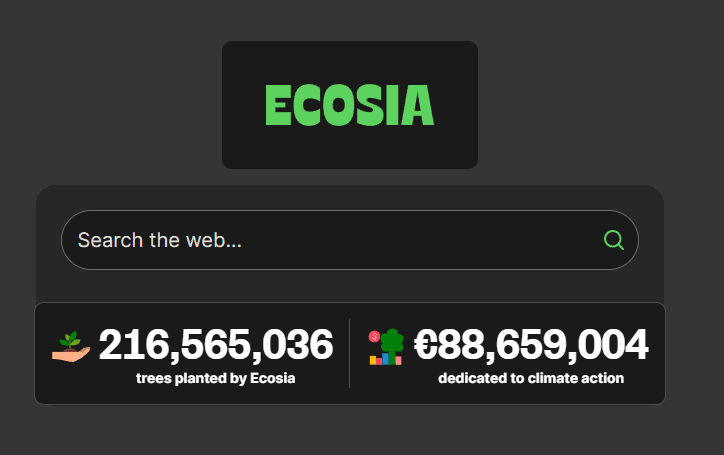
https://www.ecosia.org/
Ecosia is a well-known eco-friendly search engine that focuses on using advertising revenue to plant trees every time a user searches.
Founded in 2009 by Christian Kroll, his vision was to combat global deforestation through digital activity. Ecosia uses all its advertising revenue for projects that create a positive impact, with a particular focus on forest conservation.
To date, Ecosia has supported tree-planting projects in over 35 countries, having planted approximately over 210 million trees. The revenue generated by Ecosia for combating climate change has exceeded €88 million, with tree-planting projects deployed worldwide, including Africa, South America, and Asia.
Ecosia is also committed to transparency, clearly outlining how much funding is used for which projects through its blog.
Ecosia is used by over 1 million users utilizing Google Chrome extensions, with many people contributing to global forest conservation through their daily search activities via Ecosia.
Ekoru: Contribution to Marine Protection
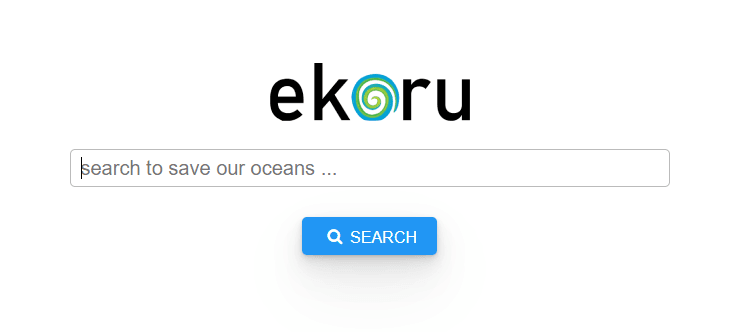
https://ekoru.org/
Ekoru is a search engine focused on environmental protection, particularly marine conservation. By using Ekoru, users contribute to ocean plastic removal and carbon dioxide reduction with every search. Founders Ati Bakush and Alison Lee share a passion for environmental issues and launched Ekoru as a means to support a sustainable future using technology.
Most of the revenue generated from Ekoru's search activities is donated to marine plastic removal and seaweed replanting projects. Ekoru has partnered with numerous NGOs to support marine conservation efforts worldwide, particularly in marine protected areas in Indonesia, Malaysia, and the Philippines. Additionally, Ekoru operates primarily in Malaysia.
Ekoru also prioritizes user privacy by not storing or tracking users' search histories. This contrasts with major search engines like Google, providing a design that respects user privacy.
giveWater: Tackling the Water Crisis
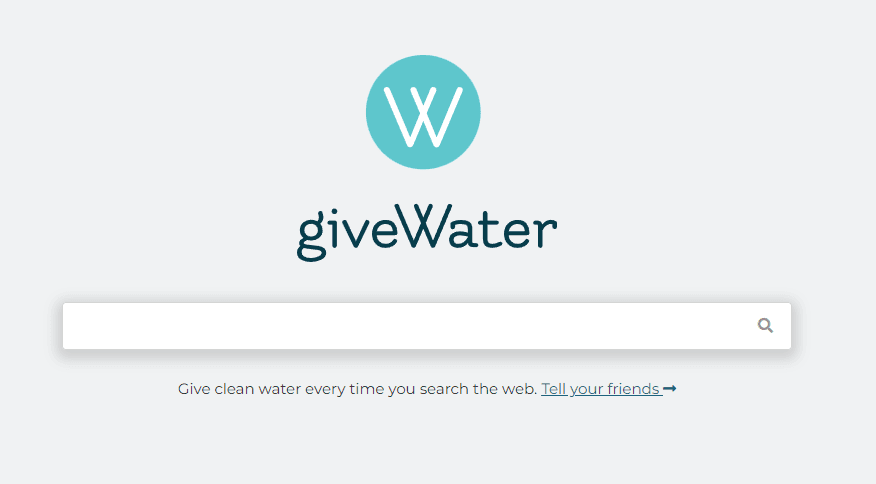
https://www.givewater.com/
giveWater is a search engine established to tackle the global water crisis, donating a portion of its advertising revenue to projects that provide clean water. This initiative supports regions around the world that are in need of safe drinking water, promoting efforts to achieve sustainable living.
Founder Michael Feeley launched giveWater in collaboration with Scott Harrison, the founder of charity: water, motivated by the desire to assist areas with limited access to water. The revenue generated from each search goes toward projects such as well installations, water purification facilities, or systems for supplying safe water.
To date, giveWater has made significant contributions to providing clean water in impoverished regions across Africa and Asia, working with various NGOs to offer sustainable infrastructure. As a result, millions have gained access to clean and safe water.
By using giveWater, users can turn their everyday search activities into a means of alleviating the water crisis and improving access to clean water. Walsh's vision is to make the world a better place through simple actions, providing users with the opportunity to do so via giveWater.
giveWater is also developing additional software, such as dedicated browsers, to make it easier for users to contribute to social causes through their search engine.
GoodSearch: A Search Engine for Social Contribution
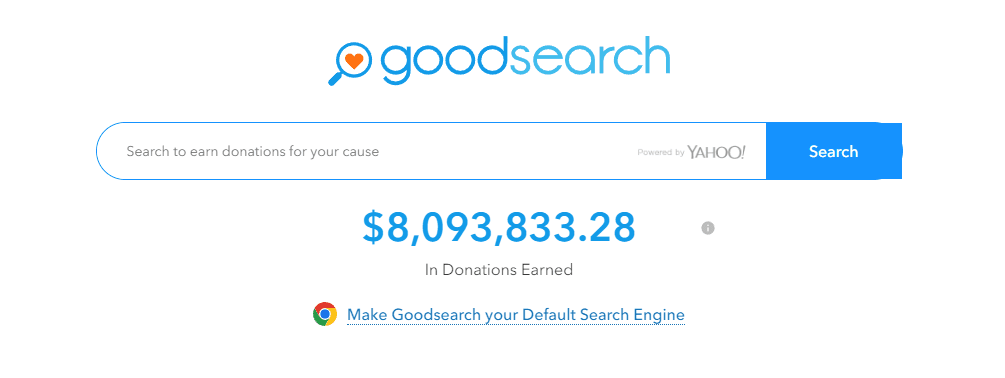
https://www.goodsearch.com/
GoodSearch is a search engine designed to donate to non-profits and schools through searches and online shopping. Each time a user searches, the advertising revenue is donated to a designated charity or school, with over $8 million donated to date.
Founder Ken Ramberg recognized the challenges faced by small organizations in fundraising after his mother battled cancer. He devised GoodSearch as a way to contribute to charitable activities, aiming to enable more people to easily engage in social contributions through their everyday internet use.
GoodSearch partners with numerous non-profits and educational institutions worldwide, allowing users to choose which organizations they want to support. Fifty percent of the profits from search activities are allocated to donations, and users can also contribute through online shopping, where a portion of their purchases goes to charity. Users can enjoy discounts when shopping through GoodSearch.
GoodSearch has gained social support by providing a simple user interface and a highly convenient search experience backed by advanced search systems from Yahoo!.
Rapusia: A Search Engine for Social Contribution and Environmental Protection
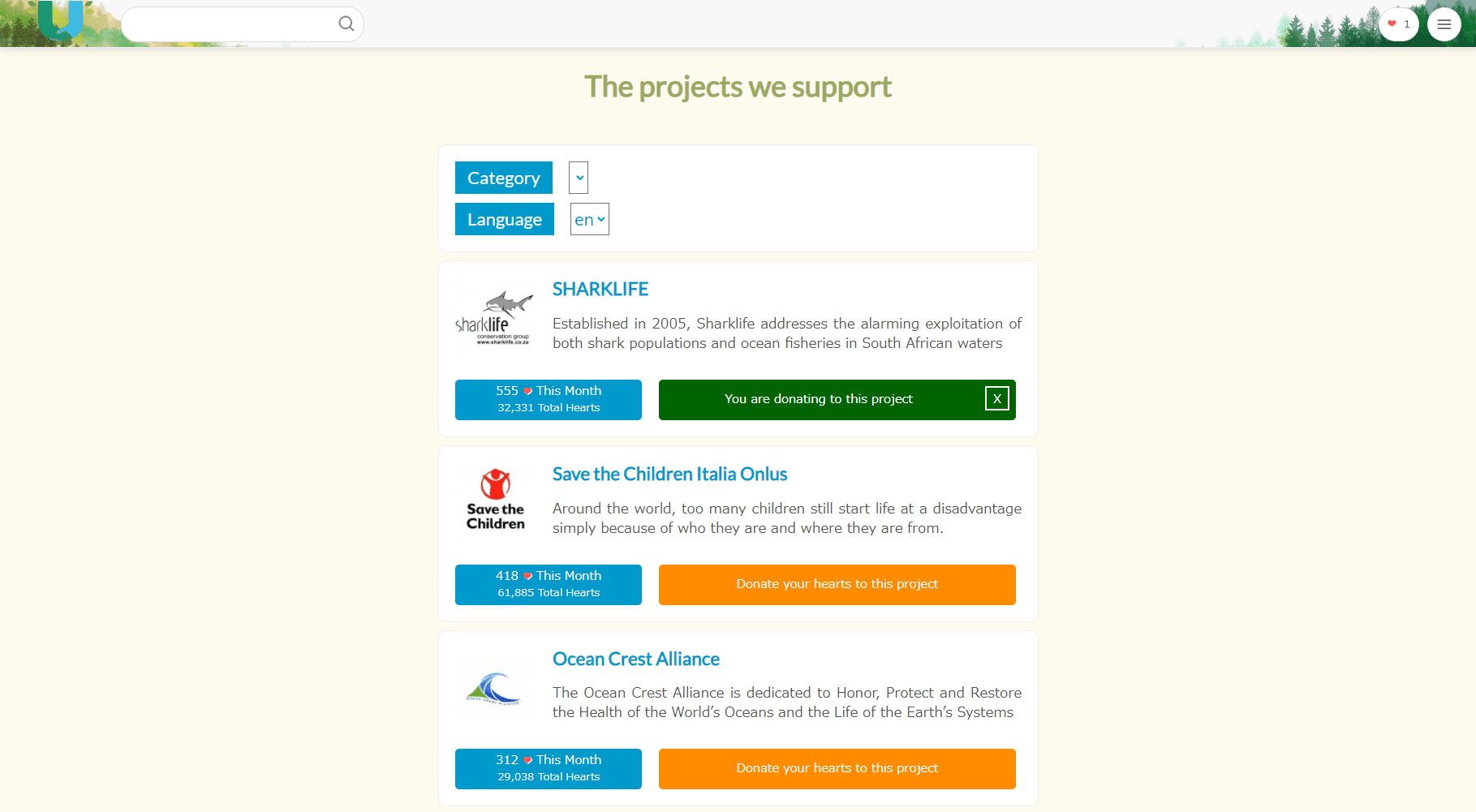
https://rapusia.org/
Rapusia is a search engine designed to contribute to environmental protection and social causes, donating 50% of the advertising revenue generated from users' searches to various charities and environmental organizations.
Founded through a collaboration between Tennis World Foundation and Coppini Trading, Rapusia's mission is to positively impact the planet and society through everyday internet usage. By simply using the search engine, users can contribute to projects like reforestation, marine conservation, animal protection, and hunger eradication. Users can choose which projects to support, with numerous options available.
Additionally, Rapusia is known for respecting user privacy, not using tracking ads. Unlike major search engines like Google, it does not collect or share personal information. While ads are displayed, they are based solely on search keywords, with no personalized ads shown. This makes Rapusia appealing to users who are concerned about privacy.
User Experience with Eco-Friendly Search Engines
When comparing traditional search engines with eco-friendly alternatives, there are minimal differences in search precision and speed due to similar underlying technologies. For example, Ecosia and Ekoru use major search engine technologies like Yahoo and Bing, offering comparable search accuracy. Therefore, the usability is not significantly different from regular search engines.
However, Google employs advanced AI and data analytics to provide more personalized search results. In contrast, search engines like Ecosia emphasize privacy protection, often designed to avoid tracking user data. Considering privacy and environmental impact, using these search engines is an attractive choice for a lifestyle mindful of the planet.
Enhanced Privacy Protection
While utilizing these eco-friendly and privacy-focused search engines, consider using SMSOnline as a solution to hide personal information such as your phone number.
SMSOnline is an online service that shares disposable phone numbers from around the world, allowing users to view SMS messages sent to those numbers online.

https://www.smsonline.cloud/
By using SMSOnline, you no longer need to expose your real phone number online. The service continually obtains phone numbers from over 20 countries, including Japan, China, Taiwan, South Korea, the USA, and Germany, always providing over 100 numbers online.
There is no need for any registration or personal information when using SMSOnline. The phone numbers provided can receive SMS messages just like your real phone number, eliminating the need to expose your true phone number online.